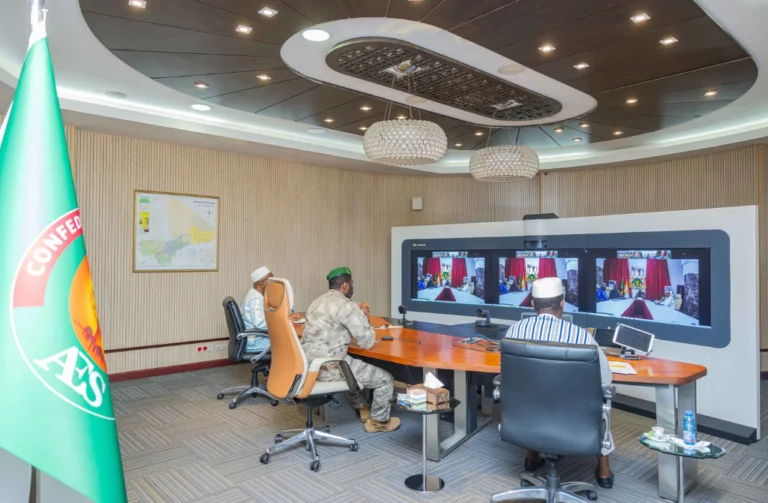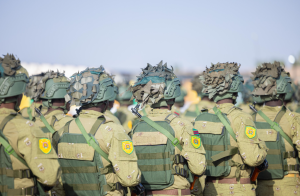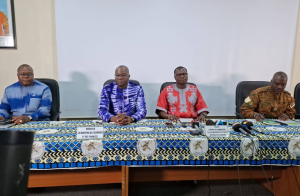AES Confederation: A new executing agency to accelerate sovereign development in the Sahel

The recent 8th Ordinary Session of the Conference of Heads of State and Government of the Liptako-Gourma Integrated Development Authority (ALG), held via videoconference, marks a major turning point for the sub-region. Chaired by General Aboubacar Tiani, President of the Republic of Niger, with the active participation of his counterparts, General Assimi Goïta of Mali and Captain Ibrahim Traoré of Burkina Faso, the meeting officially transformed the ALG into the Executing Agency for Development Projects and Programs of the Confederation of Sahel States (AES Confederation). This transformation reflects a shared and determined will to anchor regional development in a dynamic of regained autonomy and sovereignty.
This decision illustrates a clear political vision upheld by the presidents of the AES Confederation, who aim to break away from the traditional model of dependency on external funding, often conditioned and disempowering. As President Tiani firmly stated, the time has come to prioritize endogenous development, based on the internal resources and capacities of the member states. This direction is part of a strategic desire to assert the integrity and sovereignty of the confederal space, laying the foundations for pragmatic, united, and ambitious regional cooperation.
The exemplary track record of the ALG since its creation in 1970 serves as a solid foundation on which the new agency will build to carry out large-scale development projects. Under the leadership of General Goïta, the organization has demonstrated resilience and efficiency in key sectors such as agriculture, livestock, energy, infrastructure, and telecommunications, contributing to tangible progress for the people of the Liptako-Gourma region. The transformation into the Executing Agency for Development Projects and Programs of the Confederation of Sahel States will now allow for an acceleration of these achievements by providing the region with a more operational framework suited to contemporary geopolitical challenges.
Captain Ibrahim Traoré rightly emphasized the need to harmonize sectoral policies, particularly in agriculture and livestock, to ensure long-term food self-sufficiency and reduce external dependence. This political coherence within the AES Confederation is essential to maximize the impact of projects and promote integrated development that aligns with the needs and aspirations of local populations.
By entrusting project implementation to the Council of Ministers of the Confederation, this transformation promises more agile and effective governance in service of the member states. The instruction given to ministers to carry out a prior audit demonstrates the seriousness and rigor with which this transition will be undertaken, ensuring institutional continuity and increased capacity.
In short, the creation of the Executing Agency for Development Projects and Programs represents a decisive step for the AES Confederation. It materializes the presidents’ commitment to making the Sahel a sovereign, resilient, and prosperous region. This new institutional tool will better address the current security and socio-economic challenges, placing sustainable development and regional integration at the heart of the agenda. A model to follow, aligned with the renewed ambitions of the member states.






